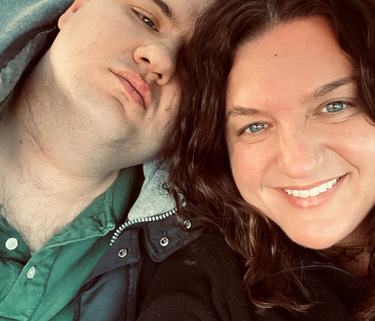Three Years to the Day Since Senator John McCain’s Thumbs Down: Congress Is Still Forgetting #WeAreEssential
By: Nicole Jorwic, JD, Senior Director of Public Policy
I was up at midnight when the clock turned over to July 28, 2017, my brother Chris’ 28th birthday. My brother has autism and is the person I have on my shoulder, in my heart, and in my head when I advocate every day. I watched Senator McCain come to the Senate floor to give his infamous thumbs down with tears streaming down my face, realizing that it was the end of the fight that the disability community just won.
And now we sit three years later, and that win feels so long ago. We have been waiting two months to see what the Senate will do with the $3 trillion HEROES Act that passed the House on May 15, 2020, a bill that included many priorities for the community.
Individuals with disabilities, their families, the workforce, and allies have been diligently reaching out to their Senators since May. And yesterday when Senate Republicans unveiled their plans, it appears that almost nothing of what the disability community needs is part of the new proposals. In fact, the HEALS Act—introduced the day after the 30th Anniversary of the Americans with Disabilities Act (ADA)—would gut the civil rights protections of the ADA in the face of the pandemic. The HEALS Act is a non-starter, while the HEROES Act that passed the House in May had many proposals that recognize the needs of people with disabilities.
The HEROES Act in the House included the top priorities of the disability community:
- $13 billion in funding for Medicaid Home and Community Based Services (HCBS). Funds that will help keep people with disabilities out of dangerous congregate settings, support recruitment and retention of the direct support professional (DSP) workforce, and prevent rate cuts for service providers.
- Access to PPE and supports for the DSP workforce.
- Stimulus payments without limitations for people with disabilities.
- Paid leave provisions to support family caregivers who must miss work to support their family members with disabilities.
- Broad FMAP increased to 14% to stabilize the Medicaid program, one of the only funding sources for Long-Term Services and Supports.
From the summaries, the Senate proposals only ensure that people with disabilities are eligible for stimulus payments. The proposals do nothing to support HCBS, Medicaid, PPE and supports for DSPs, or paid leave for family caregivers. Already five pieces of COVID-19 relief legislation have moved, including three large relief packages, and the needs of the disability community have been overlooked in each. We will not be ignored again. The asks of the disability community around this crisis are simple: recognize that whether it is individuals with disabilities like my brother Chris, family members, or the DSP workforce, #WeAreEssential. On the anniversary of Senator McCain’s bold and brave thumbs down, we must all act and tell the Senate to protect the Medicaid programs that people with disabilities rely on.








